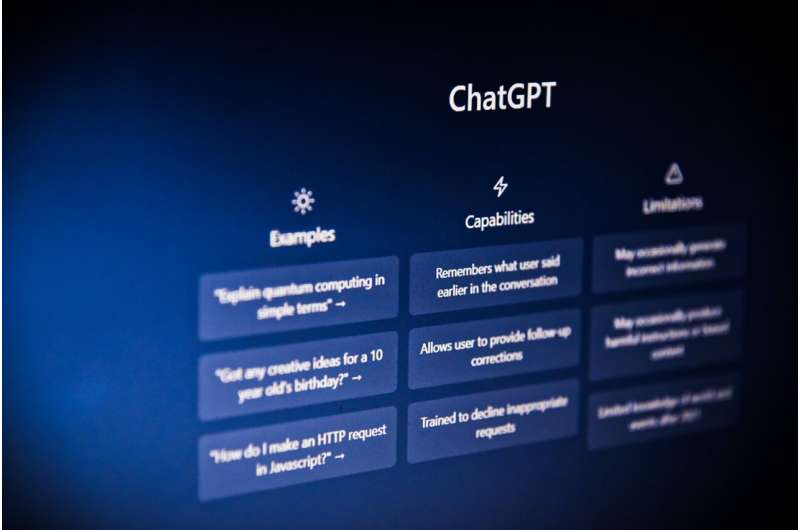
A Swansea University psychology study has found that disengaged students are more likely to use AI tools—particularly ChatGPT—for academic assignments, raising questions about academic integrity and the need for proactive interventions.
Launched in November 2022, ChatGPT is an AI program capable of answering questions in detailed, human-like ways.
Researchers surveyed 160 undergraduate students, aged between 18 and 24, in March 2023 to assess their attitudes towards and past usage of AI tools such as ChatGPT in academic coursework. The study is published in The Internet and Higher Education journal.
Thirty-two percent of respondents expressed a willingness to use AI tools such as ChatGPT for their assignments, and fifteen percent admitted they had already employed such tools in the past.
Surprisingly, commonly used indicators of academic behavior like personality traits—such as conscientiousness, agreeableness, Machiavellianism, and narcissism—along with academic performance and confidence in their own study abilities didn’t accurately predict future utilization of AI tools for coursework.
However, one key factor emerged as a significant predictor—degree apathy.
Lead author Dr. David Playfoot explained, “The influence of the five big personality traits is typically significant in behavioral studies. However, much to our surprise, participants’ level of apathy towards their degree program overrode all of them. Our study revealed that students scoring higher on our degree apathy scale, indicating a lack of interest or engagement with their degree program, were more inclined to express a readiness to use AI tools for assignments.
“It doesn’t matter if someone is generally conscientious, if they’re disengaged from their degree program, they’re still more likely to use AI tools for their assignments.”
The study also explored the impact of risk and consequences on the likelihood of cheating with ChatGPT. Results showed that students were less likely to cheat when the risk of detection was high or the punishment for cheating was severe. However, those with higher degree apathy were still more likely to engage in academic misconduct even under increased risk.
Co-author Dr. Andrew G. Thomas emphasized the significance of degree apathy as a major risk factor for academic misconduct, “Our research highlights the importance of educators and institutions taking proactive measures to tackle this issue, ensuring the integrity of academic systems.
“It also points to an element of diminishing returns when it comes to deterrent, suggesting that scorched earth policies aren’t necessary for discouraging students from misusing AI—though those deterrents may need to be stronger for those disengaged from their studies.
“This study paves the way for innovative teaching methods focused on nurturing students’ intrinsic motivation and academic accountability. By understanding the role of degree apathy in students’ decision making and actions, educators can enhance their ability to maintain academic standards and uphold integrity in today’s digital academic environment.”
More information:
David Playfoot et al, Hey ChatGPT, give me a title for a paper about degree apathy and student use of AI for assignment writing, The Internet and Higher Education (2024). DOI: 10.1016/j.iheduc.2024.100950
Citation:
Study shows disengaged students more likely to use AI tools for assignments (2024, June 3)
retrieved 3 June 2024
from https://phys.org/news/2024-06-disengaged-students-ai-tools-assignments.html
This document is subject to copyright. Apart from any fair dealing for the purpose of private study or research, no
part may be reproduced without the written permission. The content is provided for information purposes only.







